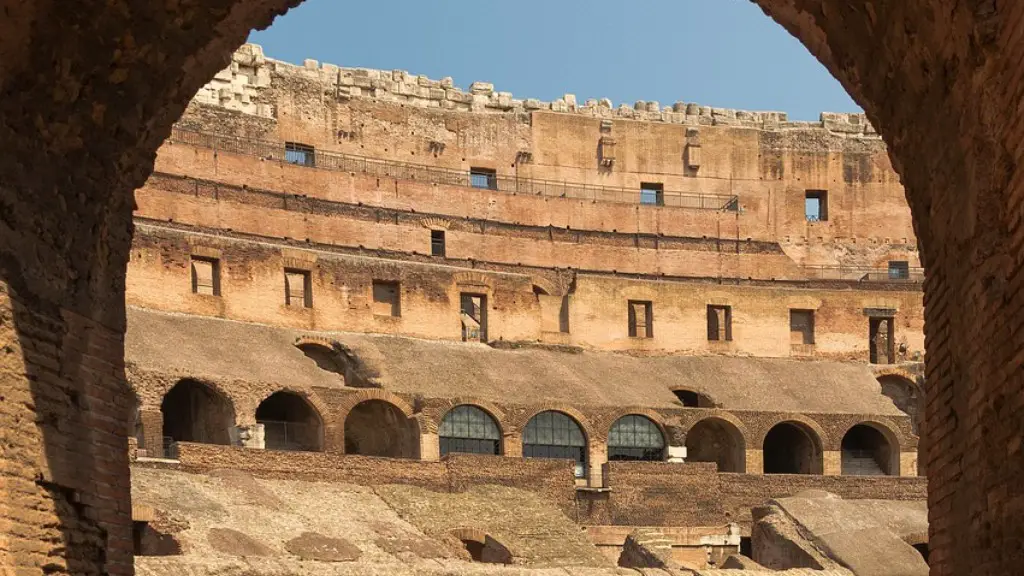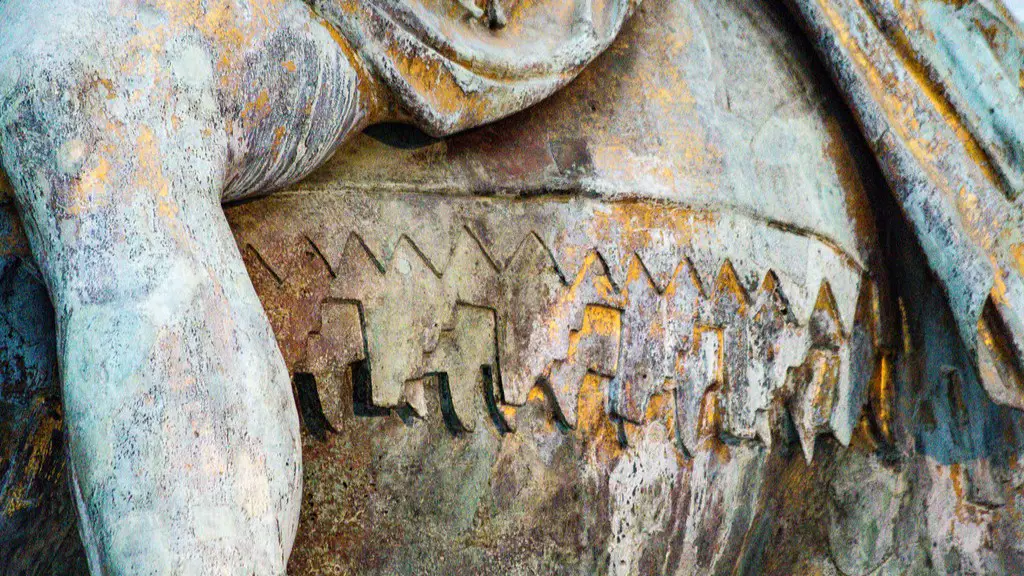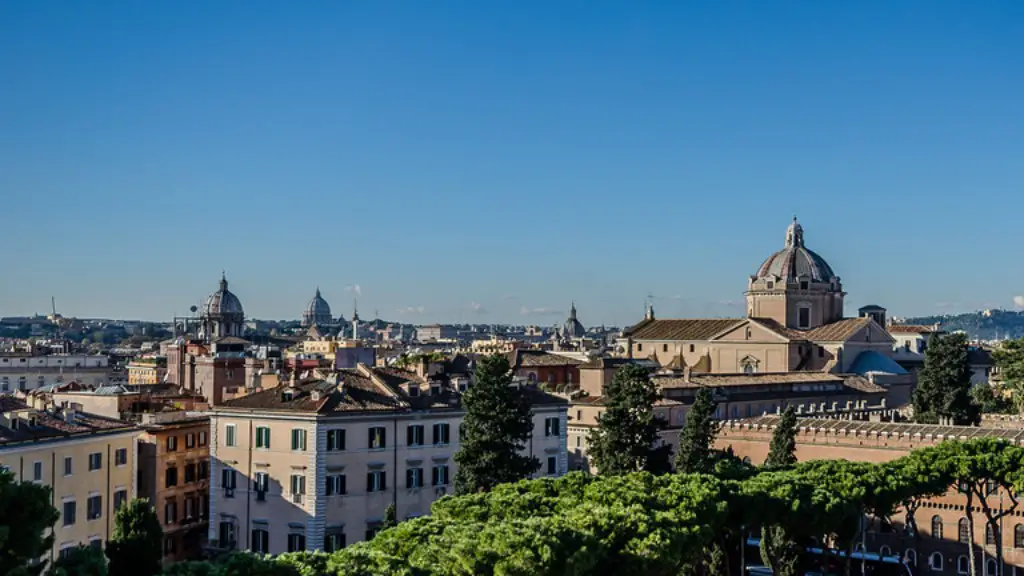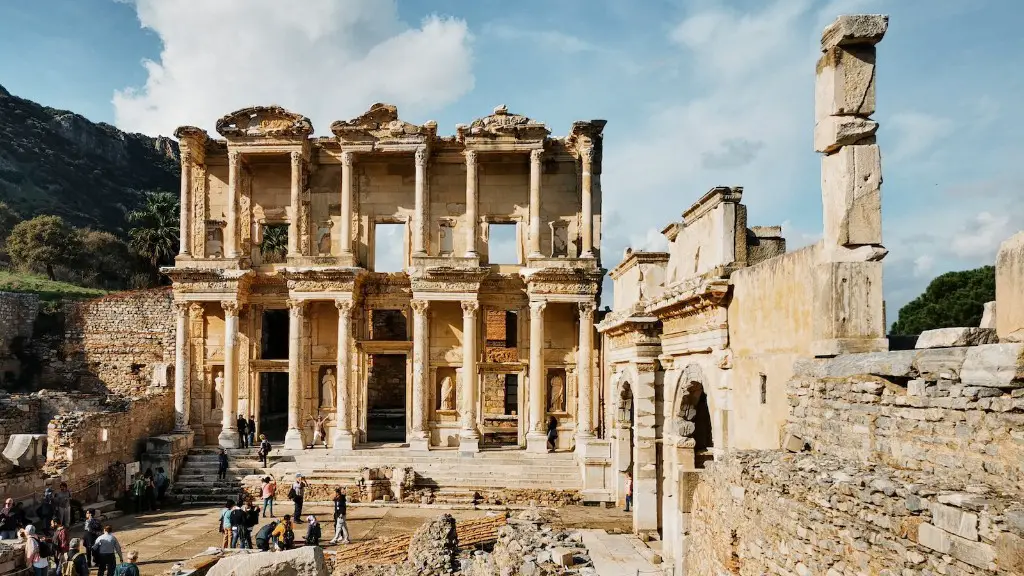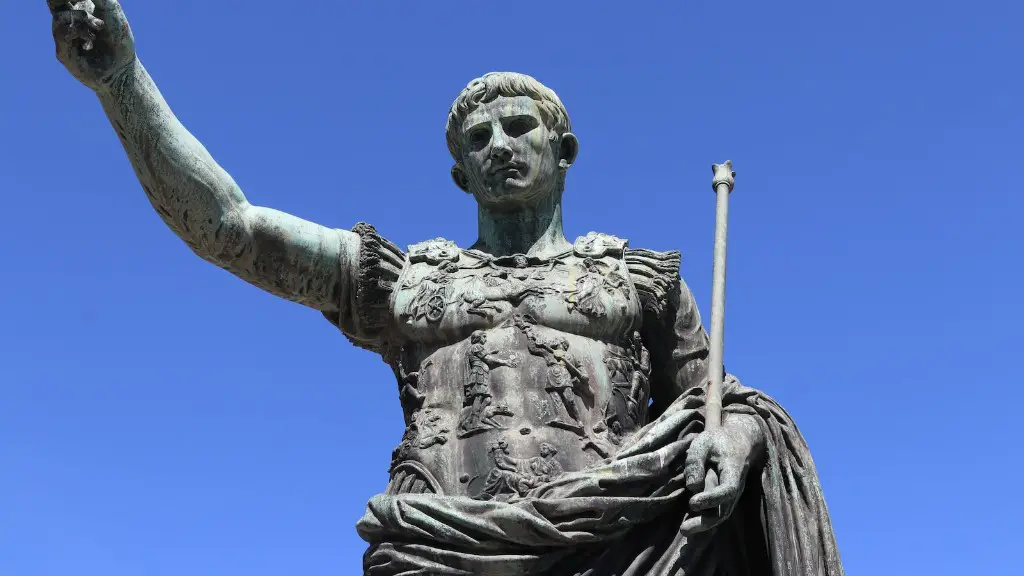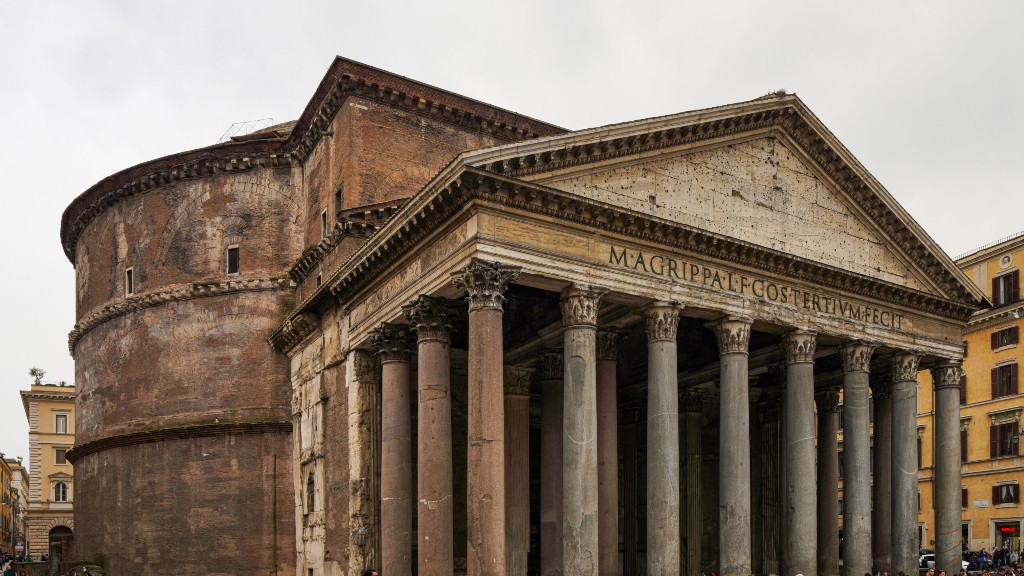The Senate of Ancient Rome was meant to represent the voice of the people, seating a selected group from the Roman government, and was one of the longest and most influential governing bodies of antiquity. As Rome gradually expanded and developed, the Senate provided stability and unity in the government, helping to maintain order. Today, many Roman institutions, such as the Roman Senate or Roman Republic, are studied in order to gain knowledge about the past.
In the early days of the Roman Republic, the Senate was an aristocratic body mainly composed of wealthy landholders, patricians, and other influential members of society. According to tradition, the Senate first convened in 509 BCE, upon the overthrow of the monarchy. The Senate was responsible for many administrative tasks, including the implementation of laws, the ratification of treaties, and the appointment of people to key government positions. The main functions of the Senate were to advise the people and pass laws.
It was the Senate’s job to interpret the laws passed by the Legislature, the Comitia Centuriata. They had the power to declare a law valid or invalid, and to decide on the proper interpretation of the law. Additionally, it was the Senate’s responsibility to supervise the administration of state affairs, including the direction of military operations and foreign diplomacy. The Senate could also issue decrees, or act as an appellate court for cases that were not covered by the laws or by the customary interpretation of the laws. This appellate role is what gave the Senate most of its authority.
In addition to its legislative responsibilities, it was the Senate’s job to finance and control public works projects, such as bridges and roads. The Senate also managed the finances of Rome, holding the keys to the treasury, and managing public funds. They were also responsible for setting taxes and regulating trade. By controlling the purse strings, the Senate maintained a great deal of power.
The Roman Senate wielded great influence and had a great impact on Roman society. Since it was the place where important decisions were taken over time, it became a major political force in the Republic. It also grew in prestige, number, and power as the Republic expanded and grew. The Senate was an important symbol of Roman stability, and it was a symbol of Roman authority. It was the Senate that presided over matters of state, and its members that foresaw the future of the Roman Empire.
The Senate was composed of elected senators, drawn exclusively from the Roman aristocracy. Senators were elected to serve for a term of two years, and were chosen through the Curiate Assembly. The Senate was presided over by a senior magister, usually appointed by the elected consuls. It was the job of the senior magister to ensure that the Senate convened regularly, to facilitate debate, and to report its results to the consuls.
The Senate was an essential organ of state throughout the history of the Roman Republic and later during the Roman Empire. It passed many of the laws that formed the basis of Roman life, with the support of elected consuls and elected praetors. The Senate provided counsel and advice to the consuls, and passed all of the important laws that defined and regulated the lives of citizens within the Roman Republic. It also had a strong voice in foreign policy and military decisions.
Political Significance of the Roman Senate
The Roman Senate played a key role in the politics of Ancient Rome and was the primary organ of governing in the Roman state. The Senate served as the main forum for debate, decision-making, and ratifying laws and policies put forward by the Roman government. It determined foreign policy and passed laws pertaining to taxation, public works, religion, and social and economic justice. The Senate was also in charge of declaring war and confirming peace treaties.
The Roman Senate sent representatives to other cities and states, made laws and resolutions, and acted as an important representative body between the people and the government. In short, it was the main governing body and decision-making authority in the Roman Republic. As such, the Senate was a cornerstone for the functioning and success of the Roman state throughout its golden years.
The Senate also held much political power in the Roman Empire, although its power was diminished since it was no longer the sole body of government. The Senate was still in charge of managing public works projects, setting taxes, and declaring war. In addition, it was the Senate that decided which policies and laws to follow from the Leadership. The Senate served as a council of advisors to the Emperor during Imperial times, and its number of members increased in order to represent more people.
Influence on Modern Governments
The Roman Senate holds many lessons for modern governments, especially in terms of the importance of representation, debate, and compromise in decision-making. It served as a powerful example of the necessity of having an organized body of officials who can negotiate associations and manage controversies. The importance of the Senate in the Roman Empire even shaped the way the founding fathers of the United States designed the U.S. government.
The Senate was a model for the bicameral system of government, with the Senate representing the wealthy and powerful, and the House of Representatives representing the people. This is similar to the structure of the Roman Senate, where the members represented not only wealthy patricians but also lower classes of citizens. The Roman Senate also had a large influence on the U.S. Constitution, which states that all U.S. citizens have the right to representation.
Today, the legacy of the Roman Senate is still felt in the modern world, where the branch of government responsible for making laws is known as the legislature, similar to the Roman Senate. The structure and conventions of the Roman Senate remain an influence in many modern democracies, especially in the United States. In short, it is clear that the Roman Senate set the standard for democratic representation and governance in the modern era.
Role of the Senate in the Roman Economy
The ancient Roman Senate had a significant impact on the Roman economy. It was the Senate that ratified important laws that regulated industry and commerce within the Republic, and it was the Senate that approved the construction of important public works projects, such as aqueducts, ports, and bridges. Additionally, it was the Senate that determined the taxes that had to be paid by the citizens, and it supervised the trade regulations of the Republic.
The Senate also determined the budget of the state, and had control over public funds. This enabled them to fund public works projects and public services, as well as to manage the state’s finances. Through its support of the army, the Senate also provided stability and security to the Roman Republic, protecting it from external threats and allowing it to grow.
In short, the Senate played an essential role in the functioning of the Ancient Roman economy. It served as the backbone of the Roman Republic and as a symbol of its stability and success. Its regulations and decrees set the foundation for economic growth, and its supervision of public works projects and finances created opportunities for prosperity.
Influence of the Senate in the Ancient World
The Roman Senate had a major impact on the development of the Ancient World. Its authority, political power, and prestige served as a unifying force for the Roman Republic. It was the Senate that oversaw decisions of war and peace, and declared laws that were applied throughout the entire Roman world. As Rome expanded and its influence grew, the Senate played an increasingly important role in ensuring a cooperation and understanding between all citizens.
The Roman Senate also had a great influence on other cultures. It was instrumental in introducing the concept of representative government to the Ancient World, and many other cultures adopted similar legislatures to the Roman Senate. It was a model that was studied and emulated by the Greeks and many other civilizations of the Mediterranean and Near East.
The example of the Roman Senate can still be seen today in many government systems around the world, showing the lasting influence of this political body. It is an example of the importance of representation and debate in decision-making. The Roman Senate stands as a lesson to modern governments, and its legacy in the Ancient World is an important reminder of its power and importance.
Legacy of the Roman Senate
The legacy of the Roman Senate can still be seen today in many countries, where its political structure has been an influence in the development of representative government. Its legacy is also seen in the modern world, where concepts such as taxation and public works are still governed by similar regulations and laws. Above all, the Roman Senate is an example of the power of democracy, and the importance of debate and compromise when it comes to decision-making. It provides an important lesson in governance, and a reminder of the importance of having a body of representatives that can speak for the whole population.
The Roman Senate is an example of how powerful and influential a democratic body can be. It shaped the very course of history, and its legacy can still be seen today. The Senate is a reminder that the power of representation and debate should not be underestimated, and that the voice of the people must be heard in order to ensure a successful government.
